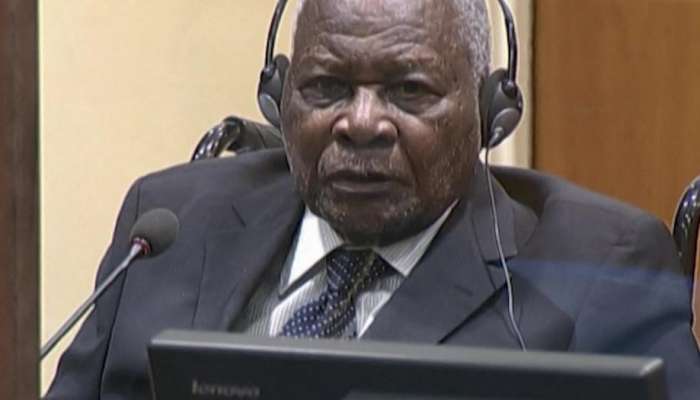
The Hague: The International Residual Mechanism for Criminal Tribunals, based in The Hague,has declared that Rwandan genocide suspect, Felicien Kabuga, is unfit for trial. Judges at the UN court have instead called for an "alternative" legal procedure.
"Mr Felicien Kabuga is unfit to participate meaningfully in his trial and is very unlikely to regain fitness in the future," the judges said in a statement. The UN judges were looking to "adopt an alternative finding procedure that resembles a trial as closely as possible, but without the possibility of a conviction."
Kabuga is in his late 80s, although his exact age is disputed. The coffee and tea tycoon is one of the few remaining Rwandan genocide suspects awaiting justice, as 62 individuals have already been convicted by the tribunal.
What is Kabuga accused of?
After evading arrest for decades, Kabuga was eventually arrested in Paris in 2020 and subsequently sent to The Hague for trial.
Kabuga initially faced trial in September 2022 with prosecutors alleging that Kabuga promoted hate speech through his broadcaster, Radio Television Libre des Milles Collines (RTLM), and armed ethnic Hutu militias. Kabuga has denied the allegations.
Throughout proceedings, he did not attend court in person and instead followed the trial remotely via video-link from a wheelchair at the court's detention centre.
In March, the court decided to halt the trial due to concerns about Kabuga's health.
Another suspect, Fulgence Kayishema, recently appeared before a court in Cape Town, South Africa, in May after spending 22 years on the run.
The Rwandan genocide
The mass killing of the Tutsi minority in Rwanda is widely thought to have been triggered by the shooting down of a plane carrying President Juvenal Habyarimana, a member of the Hutu majority, in the capital, Kigali, on April 6, 1994.
After Tutsis were blamed for the plane crash, Hutu extremists began indiscriminately killing members of the minority group and those seen as supporting them, aided by the army, police and militias.
The slaughter, which occurred against the background of the Rwandan Civil War, continued for some 100 days and left around 800,000 people dead.